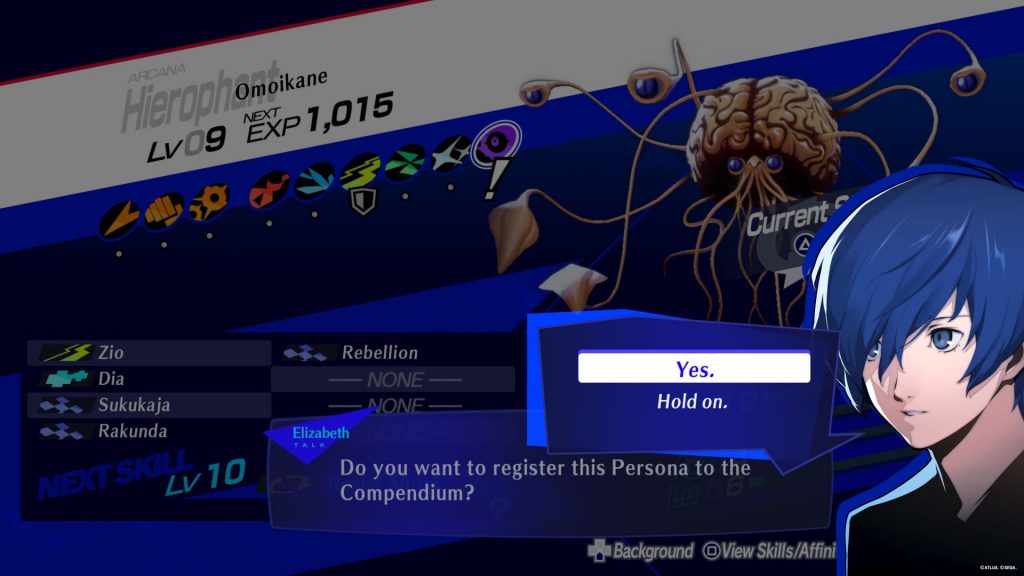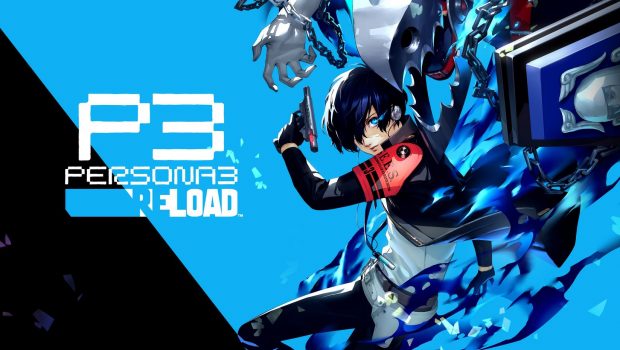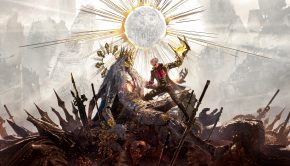Persona 3 Reload PS5 Review – Social Link to the Past, and Future
Summary: Persona 3 Reload hits the remake sweet spot, honoring its roots with a stunning visual upgrade and fun new content, making it a must-play for veterans and newcomers alike.
4.7
S.E.E.S.-ational
It’s fair to say video game remakes make up a fair portion of the annual release schedule these days. There have been a lot of high-quality games to come out of these modern re-imaginings, but there have also been plenty that haven’t exactly withstood the test of time.
Persona 3 Reload is unique in that it is the fourth version of Atlus’s 2006’s Persona 3. There was an expanded re-release, Persona 3: FES, and an alternate PSP version, Persona 3 Portable. Both were very different in the changes they made, and neither had everything in one package.
So, does Reload add enough content for long-time fans to jump in again and feel satisfied? Is it modern enough for curious newcomers? Or is it one of those remakes that removes too much?
In my 30+ hour experience, Persona 3 Reload feels and plays like a faithful remake that brings more than just a fresh coat of paint. There is a substantial amount of new content in the form of an expanded main story, new side stories and gameplay activities, more variety in the game’s iconic Tartarus dungeon, several quality-of-life improvements, and additional voice-acting and sound tracks. The graphical uplift and aesthetic overhaul, which brings the game up to modern standards, is nothing short of excellent. This is the type of remake that even long-time series fans will find fresh and exciting, as was the case with this particular Persona 4 fanboy.
For those unfamiliar, Persona 3 Reload is a role-playing game (RPG) that blends turn-based combat and dungeon crawling with social simulation mechanics. The story brings us back to 2009 and all of its late-noughties glory (flip phones, text speak and MP3 players) as an unnamed male transfer student with a mysterious past to Gekkoukan High School, located on the dreary Tatsumi Port Island. However, the regular school year is immediately turned upside down when your character discovers the Dark Hour, a place between time where monsters called Shadows lurk. A select few people, including the protagonist, can navigate it and fight Shadows by summoning magical beings called Personas… by shooting themselves in the head with a tool that looks like a gun. It was all very edgy but intriguing in 2006, but the underlying melancholy in its atmosphere and themes of death and societal decay still work in Reload.
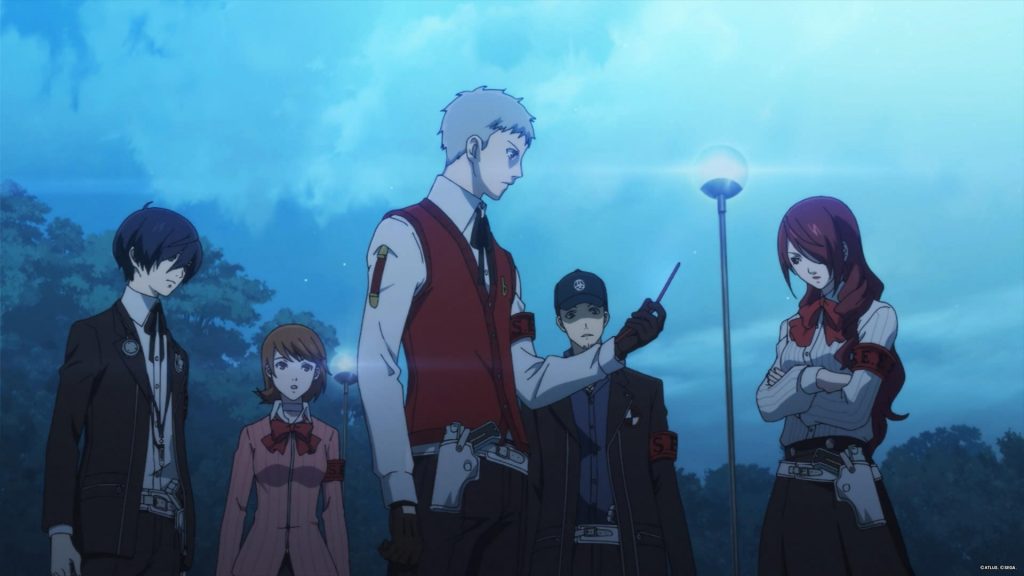
Of course, your new house-mates at the Iwatodai Dormitory know all about this craziness, and your hero is super special in that you can apparently control multiple personas unlike the rest. Eventually, you’re quickly thrust into a secret battle to protect the city, and explore a seemingly endless tower called Tartarus as part of the very anime, but very cool Specialized Extracurricular Execution Squad (SEES). Oh, and you have to go to school, study hard, work a part-time job, make friends and form bonds, too. It may sound weird to newcomers, but Persona’s narrative and gameplay appeal is its unique blend of slice-of-life moments mixed with supernatural mystery, and Reload revisits the template it first established in the original title to great effect.
Playing through a school year, you will work your way through the main story mystery of The Dark Hour on key calendar dates, while also doing everyday activities like hanging out at the dorm, improving your three stats (Confidence, Charm and Academics) and hanging out with friends, the latter of which ties into a series gameplay mechanic called Social Links. By forming bonds with both your squad and people in Tatsumi Port Island, you get to learn more about their lives while unlocking new Personas to use in battle against Shadows. These Social Links are a big reason why Reload, and the Persona franchise, are so interesting and addictive to play.
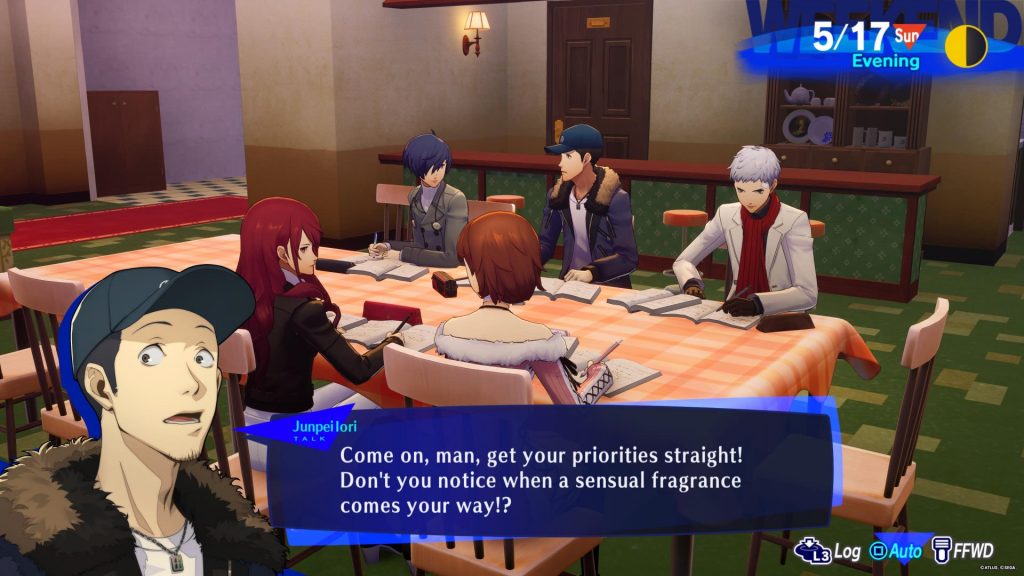
Persona 3 was actually the first game in the series to introduce the social simulation elements to the franchise, and it’s interesting to see how strong the original beloved cast and their stories remain in Reloaded, given that the dialogue is mostly the same. Junpei’s still a cringe-worthy dork, Mitsuru remains an impossibly composed senior, and Akihiko an earnest hero. The focus instead is on enhancing every Social Link with full voice acting and additional side stories, which I found made things way more engaging. I always vibed with the ‘darker’ tone of P3’s stories, and through these changes, the remake does a good job of getting you emotionally invested into many of the cast’s plights, while also still presenting a lot of lighter-hearted, entertaining, and moving insights into their lives. Whether it’s the helpless class-mate crushing on an older teacher, the wistful old book-shop owners, the anonymous MMO friend who types ‘rawr XD’ like it’s 2009 again, the boy-shy first-year or the ultra competitive track-team athlete, there are plenty of characters to meet, and responses to choose from that can help or hinder your relationship progress.
In between building bonds to unlock powerful Personas (and waifus), you also need to manage your time well, as every activity takes up a part of the day, meaning you need to choose wisely to have enough time engage in as many fun activities (hangouts, exploring Tartarus, unlocking new areas, missable optional side-stories) as possible. Improving your social stats is one of the most important pass-times, as there are prerequisites for certain stat-gated Social Links (yes, Mitsuru and Yukari need some serious self-work before you get to spend quality time with them). It is possible to experience most content in one playthrough should you choose wisely, though you can now handily rewind time to an early point in the calendar if you want to re-do things.
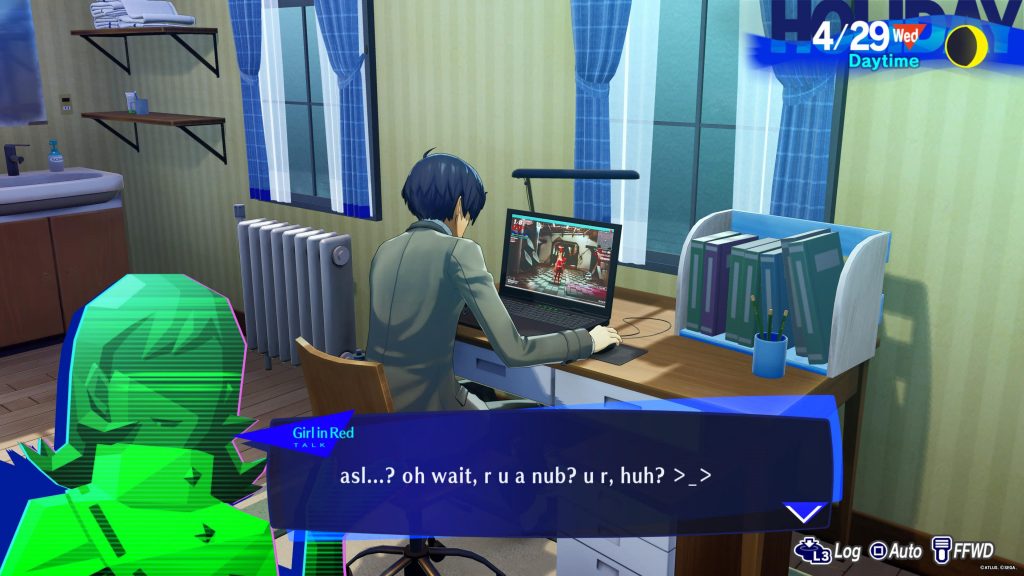
That brings us to gameplay, which also brings some changes. For newbies, combat is entirely turn-based with an emphasis on using different elemental powers to exploit enemy weaknesses. There are many different spells and strategies depending on your chosen Persona, and you can fuse them together to create new ones, or obtain them as a reward after battles. The original Persona 3 only let you control your character in combat; this was updated in Portable and is also the case in Reload, where party management is similar to Persona 5.
A new battle mechanic called the Theurgy Gauge lets you unleash powerful spells by performing certain actions in combat, and Switch allows you to give your turn to a team member if you successfully exploit an enemy’s weakness, which is similar to Baton Pass from Persona 5. These are not exactly drastic overhauls of the established formula, but they work really well to keep fights engaging.
One area of the Remake that perhaps could have seen a more drastic transformation is the main explorable dungeon of Tartarus. Simply put, it’s still a bit repetitive in Persona 3 Reload. Your goal is to ascend over a hundred procedurally generated floors which only change in style after certain minibosses, story events and story-gated checkpoints. This was my one big barrier with the original, and one that Persona 5’s Palaces easily beat. However, this remake does a better job of making each zone more thematically distinct and less grind-heavy. With the Fatigue mechanic gone, you can now climb Tartarus as long as you want in one sitting, for instance, and party banter while climbing through each floor is now fully voiced (and very funny).
The Shadows you fight are very inventive in design, and the mini-bosses are challenging without being cheap. Being able to dash means you can avoid enemy encounters and find treasures much faster. But overall, none of these elements could help me shake off the feeling Tartarus is just less creative and fun to explore compared to the Midnight Channel of Persona 4 and Palaces of Persona 5.
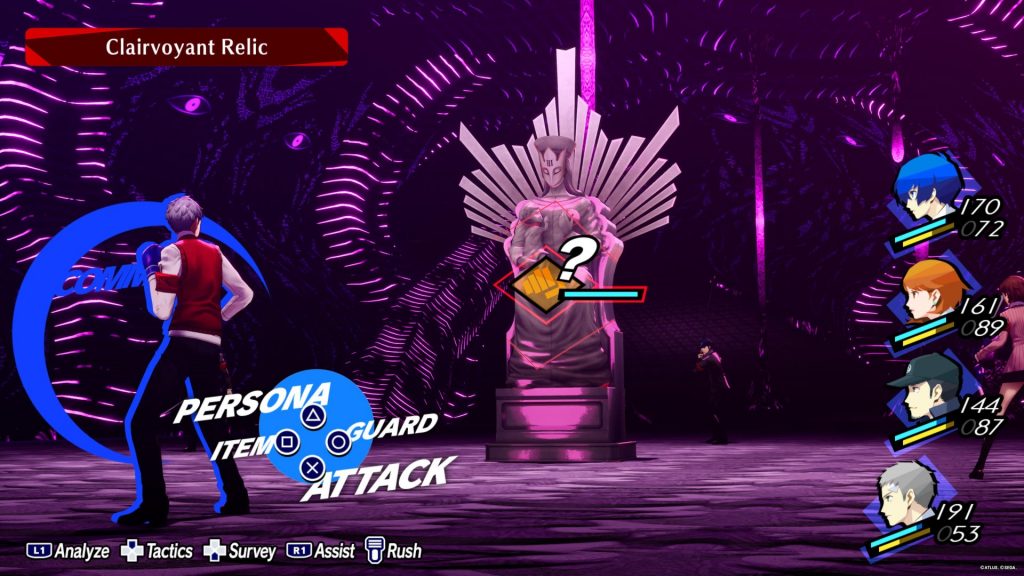
The remake’s fresh presentation does wonders to enhance the visual novel aesthetic of both the social simulator and combat parts of Reload, particularly the Social Links and lavishly animated main story cutscenes. Character models are now full-sized in proportions and more distinct in appearance, character portraits are redrawn and more expressive, and Tatsumi Port Island is far more open to explore in closer detail than before. Not to mention the game’s menus and user interface (UI) uses the same bold visual style of Persona 5, though instead of red and black, it’s a deep royal blue that evokes the same moody thematic elements (the moon, the ocean, isolation) of the original title. Combat actions are lavishly animated, with each character and their Persona exuding their own unique personality. It’s very highly stylized and incredibly slick to play.
It’s the sheer upgrade in visual fidelity, however, that truly makes the art shine. The move to Unreal Engine 4 has produced a game that looks stunning in motion and plays very smoothly. On PlayStation 5 and Xbox Series X, Persona 5 Reload plays in native 4K resolution at 60 fps with ray-tracing (RT) features out-of-the-box, save for pre-rendered and animated cutscenes which run at 30fps. Considering that Persona has never been a series associated with being at the forefront of graphical output, it was a genuine surprise to experience, but one most welcome. There are some weak spots in the lighting quality and some environments lack greater detail, but overall it’s an amazing remake when it comes to the graphical update to modern standards.
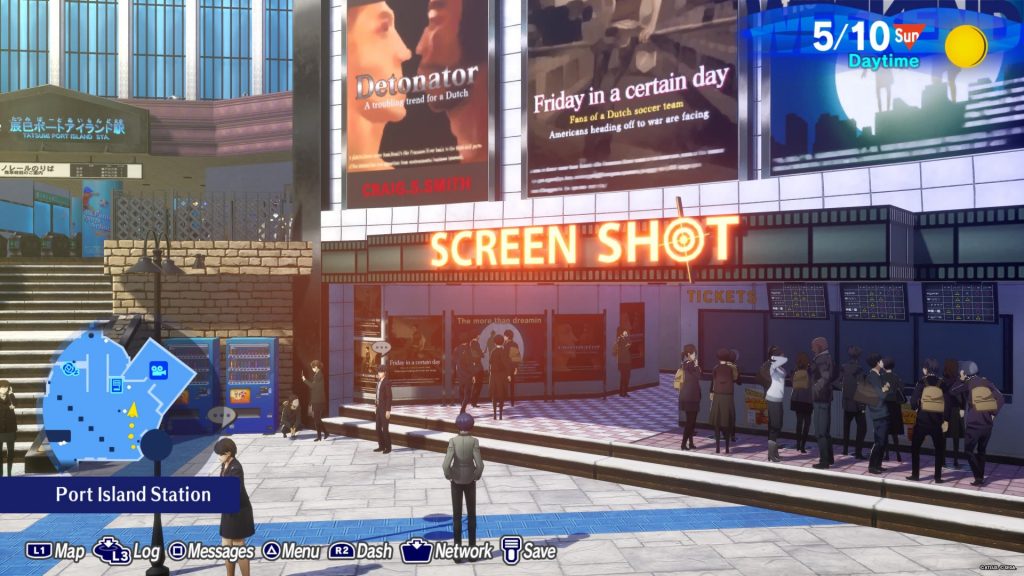
When it comes to the music, I never felt like… so mis-er-able (sorry, had to) when I first realised the iconic tracks of the Persona 3 OST were remixed for Reload. While I didn’t like the new takes on Mass Destruction and Iwatodai Dorm first, it’s clear the developers behind the remake still revere and recognise the iconic sound of the original, with the newer tracks like Color Your Night proving to be on-repeat, certified bangers of their own that rarely get old.
The new English dub voice actors also deserve a mention of their own as being both excellently cast and acted, elevating every high-stakes main story cutscene and small side banter equally. There’s several nice and unexpected nods to the original P3 voice cast too, if you listen closely enough.
The Final Verdict
Persona 3 Reload is an excellent remake of a classic RPG that balances faithful reverence with meaningful modern design tweaks, an impressive graphical overhaul and, most importantly, fun new content.
Reload sits quite neatly next to Persona 3: FES and Persona 3 Portable as another great way to enjoy the beloved cast and story of The Dark Hour, and while I personally wish there were more drastic changes made to Tartarus, it has been hard not to be enamoured all over again. Even with DLC involving ‘The Answer’ incoming, there’s a substantial amount of content to get lost in.
